Jeff Mills — electronics; Jean-Phi Dary — piano, Fender Rhodes, synthesizer; Zaf Zapha — electric/upright bass.
Jeff Mills with The Friday Guest Mix
With the release of The Paradox: Live at Montreux Jazz Festival, techno legend Jeff Mills and keyboard wizard Jean-Phi Dary embark on an exciting, ground-breaking musical trip that takes Techno and electronic dance music to a new level. In the past Jeff has spoken of the need to, “take a few steps back and try and assess what has been done, and what might need to be approached to be able to go forward.” Paradox: Live at Montreux is the result. “Trying new things is important, it’s reminding people we have not exhausted all possibilities with what we can do with electronic instruments,” he says.
Jeff argues that the form of Techno we know today formulated itself around the ’80’s and the early ’90’s, after the bang of the rave culture, yet audiences today are still content with the conceptual heritage of Studio 54 and Paradise Garage — that minimal form of music and repetitive loop-form of dance music that everyone dances to today. “I really think creatively we have exhausted ideas to a certain point and I think it’s healthy to look to other genres and the key elements that make them interesting,” he continues. “You look and compare and maybe borrow some ideas, and bring those back to electronic music, to see if it can further our creativity.”
The Paradox’s direction of travel into unexplored musical territory should come as no surprise since the Original Techno-Wizard has never stopped pioneering new ideas. After all, when he originally burst on the scene in Detroit in the 1980s he was ahead of the game — mixing on three turntables, introducing a Roland TR 909 drum machine in his sets, and co-founding Underground Resistance in 1989. Throughout his career he has been exploring the creative possibilities of techno and electronic music, pushing at its boundaries to broaden the music’s possibilities, such as introducing a programmatic element to Techno with his the score for the 1927 silent film classic Metropolis or his 2001 classic Time Machine, based on H.G. Wells’ novel of the same name. Never content to outstay his welcome by staying in the same place for too long, in 2005 he revealed the breadth of his imagination with his conceptual classic Blue Potential, an album with the Montpellier Philharmonic Orchestra that saw techno happily co-existing alongside symphonic sounds.
And now, Jacquline Caux’s Man From Tomorrow — the title of her film documentary of the Techno maestro — has cast his eyes over the musical horizon and borrowed a couple of ideas which he believes can transform Techno and take it to the next level, “I thought maybe it’s not to late to bring or transfer some of the ideas from jazz over to electronic music, and look at the machines differently — to play the machines and not just ‘programme’ them. I had the idea of trying to find the common link between free jazz and electronic music, so I reached out to jazz musicians to see if we could create something new that might be a benchmark that we could start from to create another step forward for electronic music.”
Turning to keyboard player Jean-Phi Dary, with whom he had collaborated on the late Tony Allen’s album Tomorrow Comes the Harvest, he remembered the musical ideas he had exchanged with the pianist while the sound engineer was doing his stuff during sound-checks on tour. They were akin to having a conversation that could move in any direction until a topic emerged for discussion they liked and could develop. Musically, they threw ideas out there to twist, turn and develop until they hit a groove and moved forward with that. Jean-Phi takes up the story: “During the sound checks we use to improvise with Jeff, and one day he called me and said ‘why not record these moments.’ I already had an answer — YES! I love improvising. To me it’s a combination of freedom and discipline, a real feeling of being deep inside yourself and in the same time being aware of every sound coming from your co-improvisors, from your co-creators.” The result was their first album together as Paradox called Counter Active.
It was a bold move, leaving the rhythmic certainties of Techno to explore alternative, free-flowing paths that allowed the breeze of change to blow through its highly compressed rhythms. Next came the challenge of presenting their ideas in live performance. They chose the demanding Montreux audience, and with the addition of Zaf Zapha on bass, the resulting album captures their spontaneous musical invention as it happens in the moment. It’s a high-risk, high reward strategy that was pulled off with conviction and aplomb. While each track has it’s own story on Montreux, Jean-Phi says, “‘X-Factor’ is a big trip and ‘Super Solid’ is a real groovy track to dance” — what’s happening here is the electronic sounds of Techno are used to spontaneously interact with the piano, producing a deep musical conversation not pre-determined by tape loops, a MIDI presets, the 96 rhythmic patterns stored in a TR-909 drum machine or the bass patterns of the Roland TB-303 electronic synthesizer-sequencer and all that technical geekery. Everything was up for grabs, Jeff even pared his electronic set up down to the minimum — “I didn’t even use a MIDI” he explained — so the music could go in any direction the creative impulses of Jeff and Jean-Phi wanted to take it.
“We decided to stay closer to the tracks from Counter Active like a city map, but move as freely inside them as possible,” explained Jean-Phi. Tracks like ‘X-Factor’ and ‘Super Solid’ provided a starting point and framework for the duos explorations, “The Montreux tracks are different variations of those tracks we created in the studio,” explains Jeff. “We just knew we were going to do a track that’s supposed to be called ‘X-Factor’ or one that’s supposed to be called ‘Super Solid’ — I think it’s safe to say that we didn’t know what was possible, we didn’t know that until we got together to perform. In that recording I did a lot of new things that I’ve never have done before, ‘The Concept’ and ‘Paradox’ basically come from the soundcheck jam sessions we used to do with Tony Allen when we used to tour together, and once we took the [Montreux] stage and began to play it was the extension of those musical conversations.“
What could well be a small step for Jeff and Jean-Phi could be a giant step for Techno and electronic music. Breaking new ground, they have loosened up the music’s rigid structures to let a little sunlight in while introducing an element of unpredictability and danger that moves from the mechanical to the intuitive. Pushing the envelope like this in search of risk and adventure poses questions of where it all might lead. Who knows? But what we can be sure about is that the future looks bright, full of unexplored potential and possibilities. “It’s not necessarily the form of jazz I’m interested in,” says Jeff, “it’s what you can create in the moment is what is going to be the key element of how long this genre of Techno music will last.”
-Stuart Nicholson

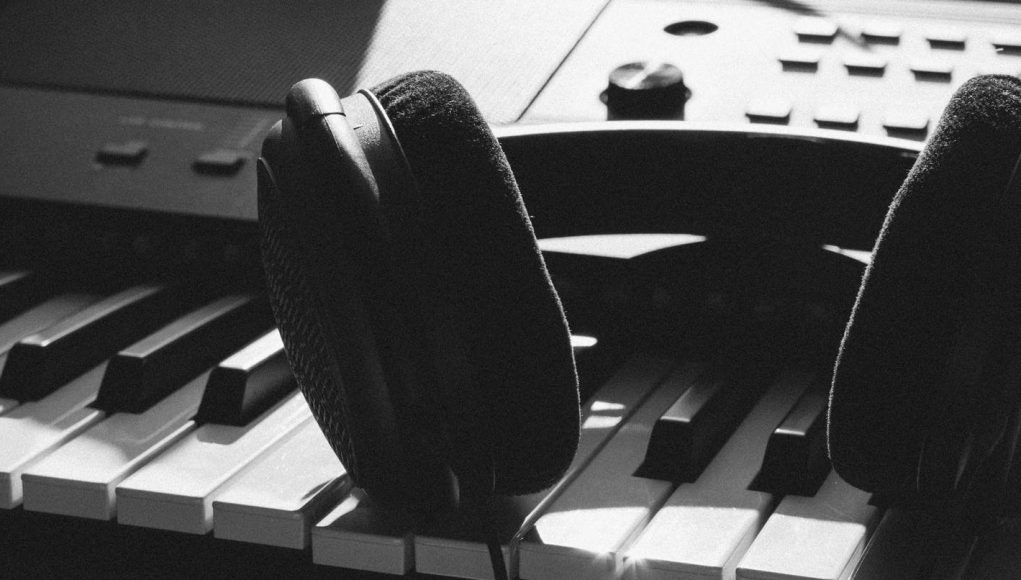


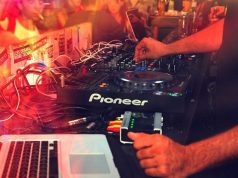
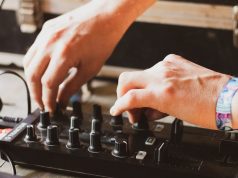
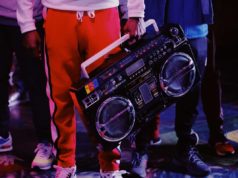
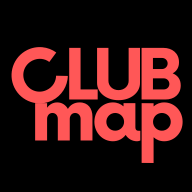
 and then
and then